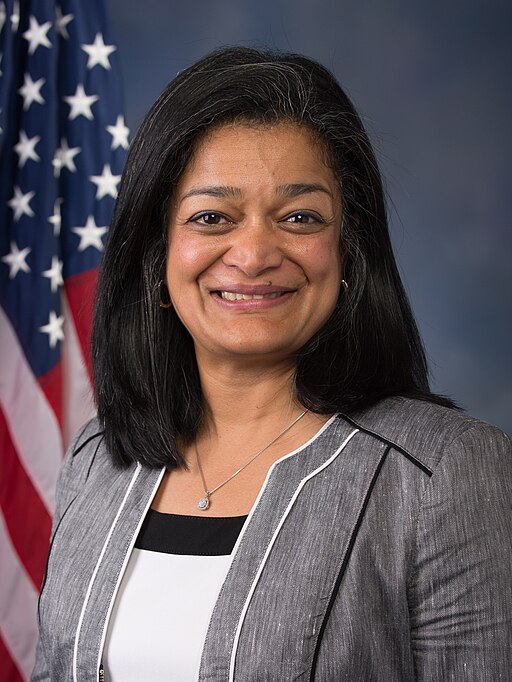In a recent address, Representative Pramila Jayapal of Washington passionately articulated a vision for comprehensive immigration reform in the United States. With a nuanced understanding of the systemic challenges embedded in the current immigration framework, Jayapal’s speech transcended traditional political discourse, offering a transformative perspective rooted in empathy, dignity, and a commitment to addressing the urgent issues faced by immigrants and the nation at large.
The congresswoman commenced her address by candidly acknowledging the inherent flaws within the existing immigration system. Her insightful analysis illuminated the pressing need for reform, shedding light on how outdated policies have resulted in prolonged processing times, legal ambiguities, and a myriad of challenges for immigrants and authorities alike. By acknowledging these systemic challenges, Jayapal set the stage for a conversation that went beyond the usual partisan rhetoric, inviting a collective acknowledgment of the need for change.
Infusing a human-centric approach into the discourse, Jayapal shared poignant stories of individuals grappling with dire circumstances, seeking refuge in a land of promise. By intertwining these narratives with her call for reform, she sought to humanize the complex issue of immigration, urging lawmakers to approach the matter with empathy, dignity, and compassion. In doing so, she challenged her colleagues to see beyond policies and statistics, emphasizing the human lives at the core of the debate.
A central pillar of Jayapal’s vision was the call for increased funding to bolster border agents and streamline immigration processes. She articulated how strategic allocations could empower immigration judges and asylum officers, transforming the system into one that is not only efficient but also humane. By emphasizing the importance of financial investment, Jayapal underscored the practical steps needed to bring about tangible improvements in the immigration landscape.
Bipartisanship emerged as a key theme in Jayapal’s vision. She championed the idea that real progress could only be achieved through collaboration and legislative solutions that transcended party lines. The congresswoman shed light on proposed legislation, such as the Dream and Promise Act and the Farm Worker Modernization Act, as examples of bipartisan endeavors that could bring about tangible improvements to the immigration landscape. In doing so, she positioned these legislative efforts as pathways to meaningful change, inviting her colleagues to join forces in crafting solutions that would benefit both immigrants and the broader community.
However, Jayapal did not shy away from addressing perceived resistance from Republicans towards comprehensive immigration reform. She asserted that overcoming such resistance was crucial to dismantling obstacles, fostering progress, and building a system aligned with the nation’s values. By acknowledging the political realities and offering a nuanced perspective on navigating political resistance, Jayapal demonstrated a commitment to finding common ground.
In a stark warning against the consequences of inertia, Representative Jayapal cited instances where decisions made by those resistant to reform exacerbated existing issues. Her foresight underscored the urgency of finding common ground to address the humanitarian crisis at the border and deliver practical, forward-thinking solutions. Through this, she positioned inaction as not just a political setback but as a contributor to the ongoing challenges faced by immigrants and those involved in immigration processes.
In concluding her address, Jayapal issued a resounding call to action, urging her colleagues to move beyond rhetoric and collaborate on a transformative vision for immigration reform. She emphasized the imperative of prioritizing the well-being of migrants and finding solutions that resonate with the compassionate and diverse fabric of the nation. By doing so, she invited her fellow lawmakers to consider the broader implications of their decisions, emphasizing the collective responsibility to address the challenges within the United States’ immigration system.
In essence, Representative Pramila Jayapal’s vision for comprehensive immigration reform stands as a powerful testament to the potential for transformative change. By centering the discourse on empathy, bipartisan collaboration, and proactive solutions, her address transcended political divides, offering a roadmap towards reshaping the United States’ immigration landscape. In embracing Jayapal’s vision, lawmakers have an opportunity to move beyond partisan gridlock and enact meaningful change that aligns with the nation’s core values.

